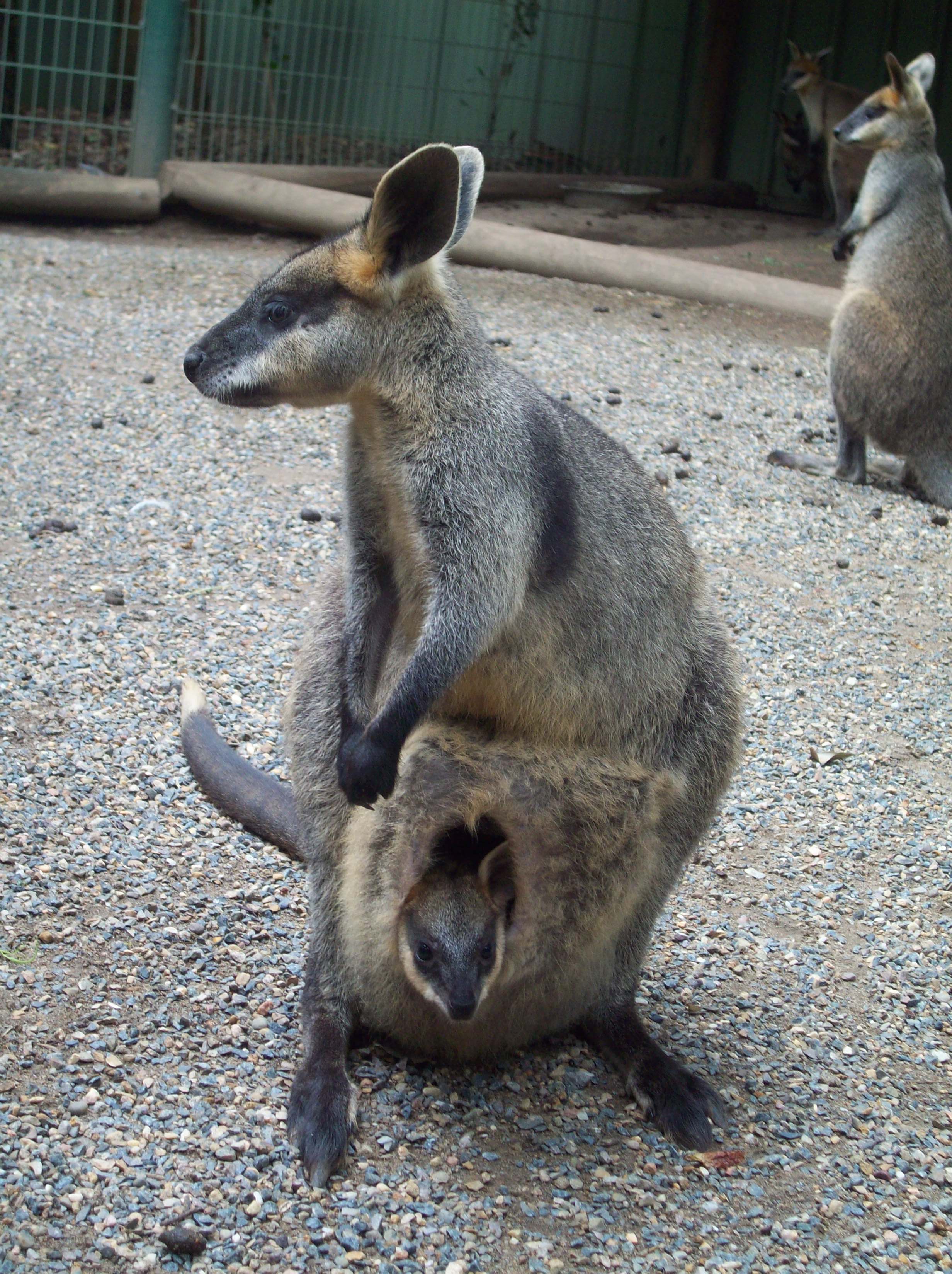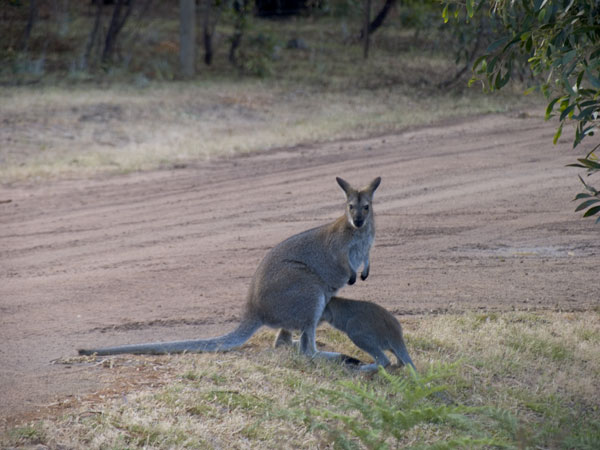 Macropus
rufogriseus
Macropus
rufogriseusRed-Necked Wallaby

 :: Reproduction
:: Reproduction
How does reproduction work in the
Red-necked Wallaby?


Males reach maturity at
about two years of age, and females at about 14-19
months. The genitalia of Wallabies are on the inside of
the body, and females are determined by their pouches.
Wallabies like all other marsupials, with the exception
of the
Platypus, give birth to live
young. The gestation period is on average thirty days.
After about thirty days the tiny Joey is born. The Joey
is the size of a bean, about 1/2" to 3/4". It is
hairless, blind and deaf. It crawls/ wiggles its way up
the mother's abdomen, following the direction of her
fur. It then reaches the front opening pouch, this
process can take up to fifteen minutes, and crawls in.
The Joey then attaches to one of four teats. The teat
enlarges inside the Joey's mouth and it is stuck there for
four months while it continues to grow.
After about one or two days of giving birth to the Joey the female goes into heat and breeds. An interesting fact is that this newly fertilized egg can go into a stage called embryonic diapause. This is when the egg is dormant and does not continue to develop until the already born Joey is out of the pouch.

The first time the Joey looks out of the pouch is at about five months. At six months it leaves for the first time, but jumps back in at the first sign of danger. At eight to nine months they are too large for for the pouch and stay out most the time. At this time they are called "young-at-foot", and they continue to get milk from their mother until they are weaned at about twelve months.
Wallabies on the mainland of Australia breed throughout the year but have an increase of breeding throughout the year. The island wallabies breed usually around the same time and give birth between January and July. They usually give birth to one Joey at a time, although not likely it can have two. It is possible to have a "young-at-foot" and a Joey developing
in the pouch, and for this reason female wallabies can
produce two types of milk at once.
have a "young-at-foot" and a Joey developing
in the pouch, and for this reason female wallabies can
produce two types of milk at once.
Find out what interactions is has with Others!!!
After about one or two days of giving birth to the Joey the female goes into heat and breeds. An interesting fact is that this newly fertilized egg can go into a stage called embryonic diapause. This is when the egg is dormant and does not continue to develop until the already born Joey is out of the pouch.

The first time the Joey looks out of the pouch is at about five months. At six months it leaves for the first time, but jumps back in at the first sign of danger. At eight to nine months they are too large for for the pouch and stay out most the time. At this time they are called "young-at-foot", and they continue to get milk from their mother until they are weaned at about twelve months.
Wallabies on the mainland of Australia breed throughout the year but have an increase of breeding throughout the year. The island wallabies breed usually around the same time and give birth between January and July. They usually give birth to one Joey at a time, although not likely it can have two. It is possible to
 have a "young-at-foot" and a Joey developing
in the pouch, and for this reason female wallabies can
produce two types of milk at once.
have a "young-at-foot" and a Joey developing
in the pouch, and for this reason female wallabies can
produce two types of milk at once.Find out what interactions is has with Others!!!





